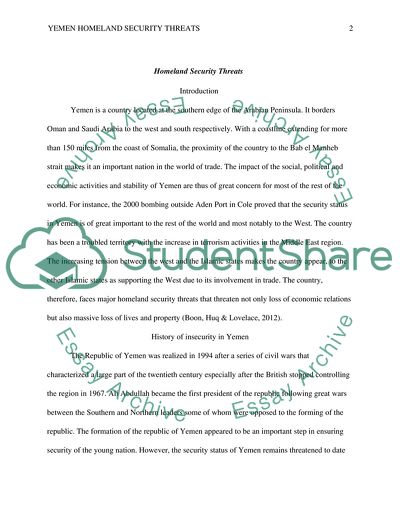Cite this document
(Homeland Security Threats to Yemen Essay Example | Topics and Well Written Essays - 2000 words, n.d.)
Homeland Security Threats to Yemen Essay Example | Topics and Well Written Essays - 2000 words. https://studentshare.org/military/1842369-homeland-security-threats-to-yemen
Homeland Security Threats to Yemen Essay Example | Topics and Well Written Essays - 2000 words. https://studentshare.org/military/1842369-homeland-security-threats-to-yemen
(Homeland Security Threats to Yemen Essay Example | Topics and Well Written Essays - 2000 Words)
Homeland Security Threats to Yemen Essay Example | Topics and Well Written Essays - 2000 Words. https://studentshare.org/military/1842369-homeland-security-threats-to-yemen.
Homeland Security Threats to Yemen Essay Example | Topics and Well Written Essays - 2000 Words. https://studentshare.org/military/1842369-homeland-security-threats-to-yemen.
“Homeland Security Threats to Yemen Essay Example | Topics and Well Written Essays - 2000 Words”. https://studentshare.org/military/1842369-homeland-security-threats-to-yemen.


